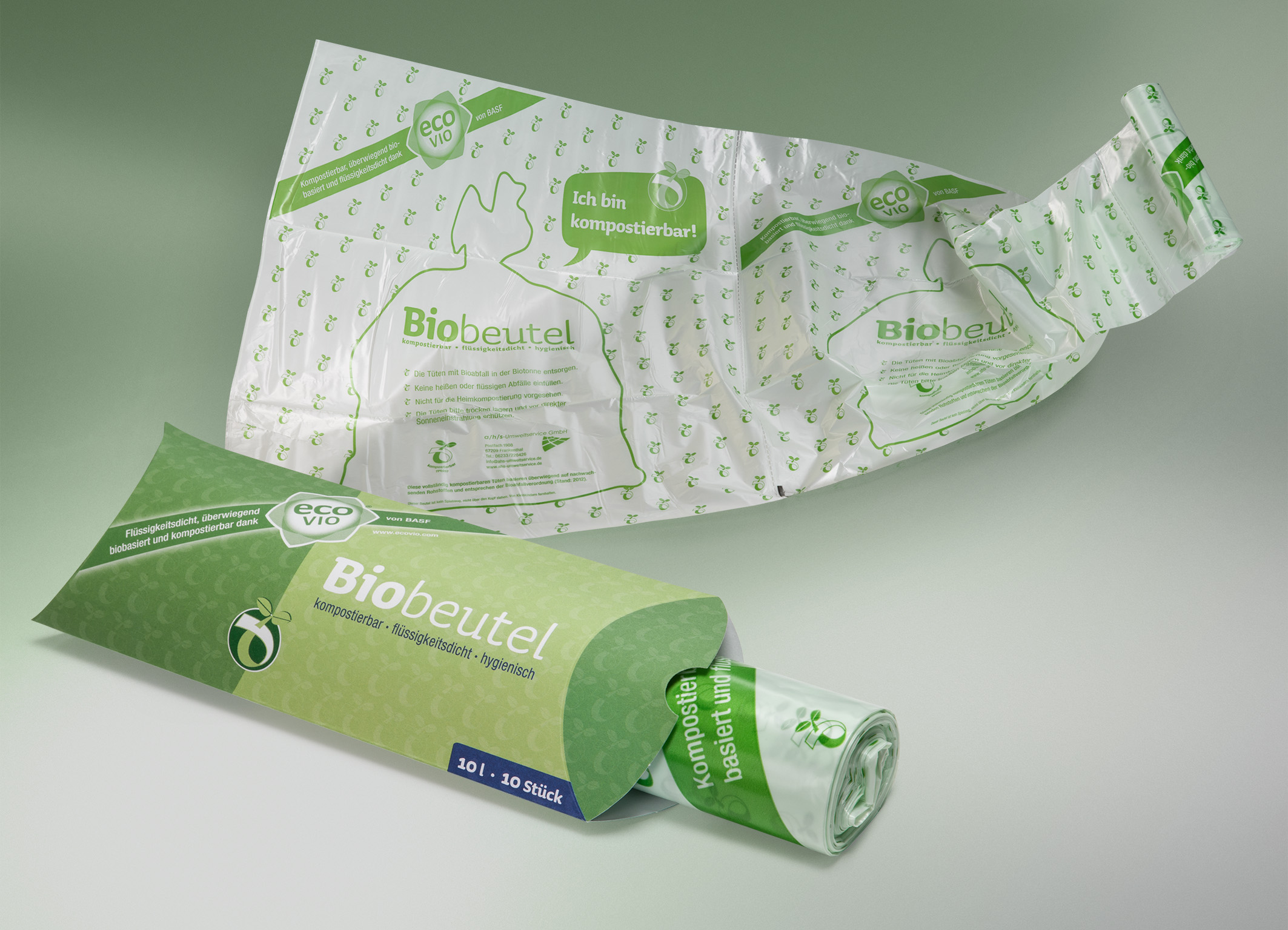While BASF is still cautious on the use and marketing of bioplastics, the company admitted that biopolymers do present a growth market opportunity and therefore BASF is planning to expand its business in this area.
BASF announced today that it is currently stepping up research in the biodegradable polymers area primarily biobased foam with properties similar to polystyrene foam for use as packaging for food and electric/electronic goods.
BASF is currently working in cooperation with international certification agency TÜV SÜD to develop an innovative mass balance approach for flexible use of renewable feedstock integrated into their Verbund production in Ludwigshafen. The company said biomass is already being employed as a raw material in the manufacture of basic products in existing plants. This biomass share is allocated to selected products using a certified methodology.
“The product certified by TÜV SÜD as using renewable raw materials is chemically identical to its conventional fossil-based product. Therefore there are no differences in quality, and existing licenses apply. Since there is no need to build new plants, this innovative method makes a contribution to sustainability.” – BASF
Helping to expand demand for the company’s compostable plastic ecovio®, the public works department of the city of Ludwigshafen, Germany, in coordination with the waste management company GML-Abfallwirtschaftsgesellschaft as the operator of the organic composting plant, has recently approved the use of organic waste bags made of BASF’s compostable plastic ecovio® FS for disposal in the organic waste bins in the city of Ludwigshafen. The recommendation made by WBL is restricted to ecovio bags, which are recognized by the flower-shaped ecovio logo and the numerous small seedling symbols.
The districts of Rhine-Pfalz and Ennepe-Ruhr now also permit the use of ecovio organic waste bags. The material ecovio® FS is made of the partially bio-based ecoflex® FS and polylactic acid (PLA). ecoflex® FS is a compostable petroleum-based polybutylene adipate-co-terephthalate (PBAT) resin.
German lawmakers have authorized that, as of the beginning of January 2013, organic waste bags that are completely biodegradable and also consist primarily of renewable raw materials are allowed to be disposed of in the organic waste garbage bins together with the organic waste. The amendment to the German Recycling Law also requires separate collection of organic waste throughout Germany as of January 2015.
BASF said their 10-liter bags are already available in retail stores in Ludwigshafen. A pack of 10 currently costs less than €2. Information about the points-of-sale can be found at www.ecovio.de/biobeutel.

BASF’s new ecovio® products
Last month, BASF added new products under its ecovio® line with thermoformable version for food trays (ecovio® T2308) and injection molding grade for complex and high quality packaging (ecovio® IS1335). The products are now available in commercial quantities.
BASF said the new variants found first production application in coffee capsules. The Swiss Coffee Company’s coffee capsules beanarella consist of the new injection molding grade ecovio IS1335; at the same time the multi-layer composite system for the aroma-tight outer barrier packaging for the capsules is also ecovio-based. The capsules fulfill the demanding requirements for protecting the product and brewing coffee in high-pressure coffee machines, yet may still be composted; so does the barrier packaging. The product was jointly developed in around 13 months time frame.
FOLLOW ME ON THESE SPACE

Discussion
Comments are closed.